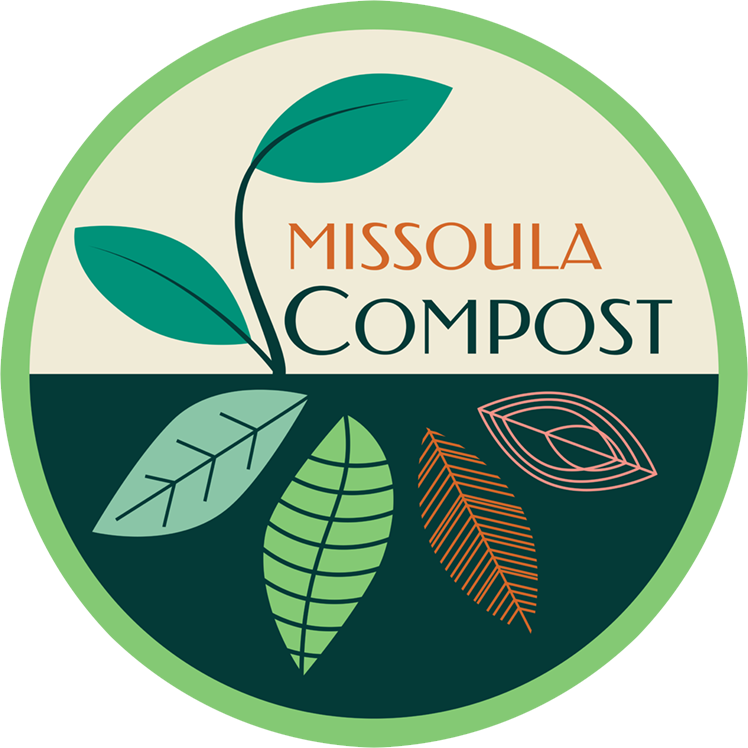What you can compost in Missoula
Accepted Compost
Compostable material can safely break down into usable natural elements in a compost-friendly environment, leaving no toxic residue.
-
Fruit & vegetable peels
Coffee grounds
Tea bags
Breads, grains, pasta
Dairy, eggshells
Meats, bones & seafood
-
Lawn Material
Grass clippings
Fall leaves
Branches
Garden debris
Weeds
100% Paper Products
Napkins
Paper towels
Carboard (pizza boxes)
!00% Natural Materials
Bamboo products
Sugarcane
-
We ONLY accept BPI or TUV-certified compostable products. This guarantees an item has been tested to completely break down, leaving no residues, within 90 days in the heated and microbial conditions of a commercial compost facility.
Byproducts include water and a little CO2.
Not Compost
Non-compostable items don’t break down into usable natural elements, contaminate the compost, and/or create potential liability issues when hauling and at the compost site.
-
Plastic (bags, wrappers, utensils)
Produce stickers
Glass or metal
Rubber bands, twist ties
Styrofoam
Glossy or coated paper
Synthetic fabrics (e.g. polyester)
-
Diapers or sanitary products
Pet waste
Ash
Treated or painted wood
-
Any plastic product that has natural-looking symbols, claims, or irrelevant certifications is not accepted as compost.
ONLY BPI or TUV-certified bioplastics are accepted.
In Missoula, we have access to our city-owned industrial compost facility, Garden City Compost. Using this technology, we can safely compost a wider variety of materials compared to backyard methods, including meat, dairy, small bones, and weeds.






